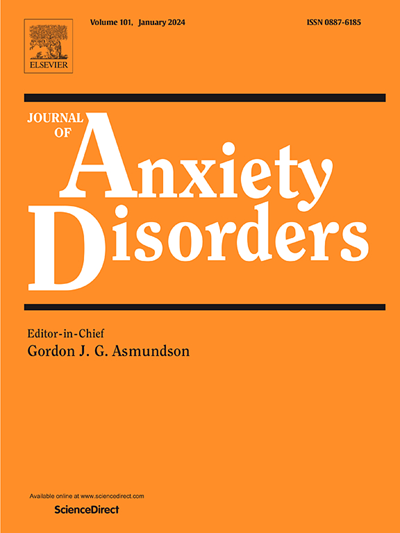PTSD and cognition in older adults: A systematic literature review
IF 4.5
2区 医学
Q1 PSYCHIATRY
引用次数: 0
Abstract
Post-traumatic stress disorder (PTSD) is a disabling mental health disorder affecting psychosocial functioning and quality of life. This systematic review is the first to summarize existing global literature on the relationship between PTSD and specific domains of cognitive function in the general population of older adults. We searched PsycINFO, Medline and CINAHL up until November 1st 2024. Studies were included if they were longitudinal cohort or cross-sectional studies of adults aged 60 years and over with a clinical diagnosis of PTSD or subthreshold PTSD symptoms, reporting on any domain of cognitive functioning using a standardised measure. Eighteen good or satisfactory quality articles met criteria for this review, of which three were longitudinal cohort studies and fifteen were cross-sectional studies. PTSD was associated with significant accelerated general cognitive decline and possible accelerated decline in attention and memory over time. Older adults with PTSD additionally performed significantly worse on measures of global cognitive function and memory compared to those without PTSD. For executive function results were mixed; two studies showed significant negative associations, whereas four other studies showed no significant differences between individuals with and without PTSD. Proactive screening of individuals with PTSD for cognitive decline and an additional focus of PTSD treatment on cognitive functioning are needed.
老年人PTSD与认知:系统文献综述
创伤后应激障碍(PTSD)是一种影响社会心理功能和生活质量的致残性精神健康障碍。本系统综述首次总结了现有的全球文献中关于PTSD与老年人特定认知功能领域之间关系的研究。我们检索了PsycINFO, Medline和CINAHL,直到2024年11月1日。研究包括对60岁及以上的成年人进行的纵向队列或横断面研究,这些成年人临床诊断为PTSD或阈下PTSD症状,使用标准化测量报告任何领域的认知功能。18篇质量良好或令人满意的文章符合本综述的标准,其中3篇为纵向队列研究,15篇为横断面研究。随着时间的推移,创伤后应激障碍与显著加速的一般认知能力下降以及可能加速的注意力和记忆力下降有关。此外,与没有PTSD的老年人相比,患有PTSD的老年人在整体认知功能和记忆方面的表现明显更差。执行功能的结果好坏参半;两项研究显示了显著的负相关,而另外四项研究显示患有和没有创伤后应激障碍的个体之间没有显著差异。需要对PTSD患者进行认知能力下降的主动筛查,并将PTSD治疗的额外重点放在认知功能上。
本文章由计算机程序翻译,如有差异,请以英文原文为准。
求助全文
约1分钟内获得全文
求助全文
来源期刊

Journal of Anxiety Disorders
Multiple-
CiteScore
16.60
自引率
2.90%
发文量
95
期刊介绍:
The Journal of Anxiety Disorders is an interdisciplinary journal that publishes research papers on all aspects of anxiety disorders for individuals of all age groups, including children, adolescents, adults, and the elderly. Manuscripts that focus on disorders previously classified as anxiety disorders such as obsessive-compulsive disorder and posttraumatic stress disorder, as well as the new category of illness anxiety disorder, are also within the scope of the journal. The research areas of focus include traditional, behavioral, cognitive, and biological assessment; diagnosis and classification; psychosocial and psychopharmacological treatment; genetics; epidemiology; and prevention. The journal welcomes theoretical and review articles that significantly contribute to current knowledge in the field. It is abstracted and indexed in various databases such as Elsevier, BIOBASE, PubMed/Medline, PsycINFO, BIOSIS Citation Index, BRS Data, Current Contents - Social & Behavioral Sciences, Pascal Francis, Scopus, and Google Scholar.
 求助内容:
求助内容: 应助结果提醒方式:
应助结果提醒方式:


